MASLD Basics With Gabriella McCarty
Chat with MASLD AI

Hi, I am MASLD AI.
Suggested Questions :

MASLD AI 08:19 PM

In this educational session, Gabriella McCarty, NP at North Shore Gastroenterology, shares practical insights into Metabolic Dysfunction-Associated Steatotic Liver Disease (MASLD) and MASH. Drawing from over 25 years of experience in GI, IBD, and hepatology, she explains how many fatty liver patients are discovered incidentally during workups for unrelated issues such as GERD or routine colonoscopy. Gabriella reviews the new global terminology (MASLD replacing NAFLD, MASH replacing NASH), outlines key metabolic risk factors that define MASLD, and walks through the role of non-invasive tests (FIB-4, FibroScan, ELF, ultrasound) in staging fibrosis. She emphasizes the importance of early detection, patient education, and primary care involvement in identifying at-risk individuals before progression to advanced fibrosis, cirrhosis, or liver cancer. This presentation highlights how MASLD can silently progress, why primary care and GI collaboration are critical, and the growing need for global awareness and prevention of progressive liver disease.
Related Podcast
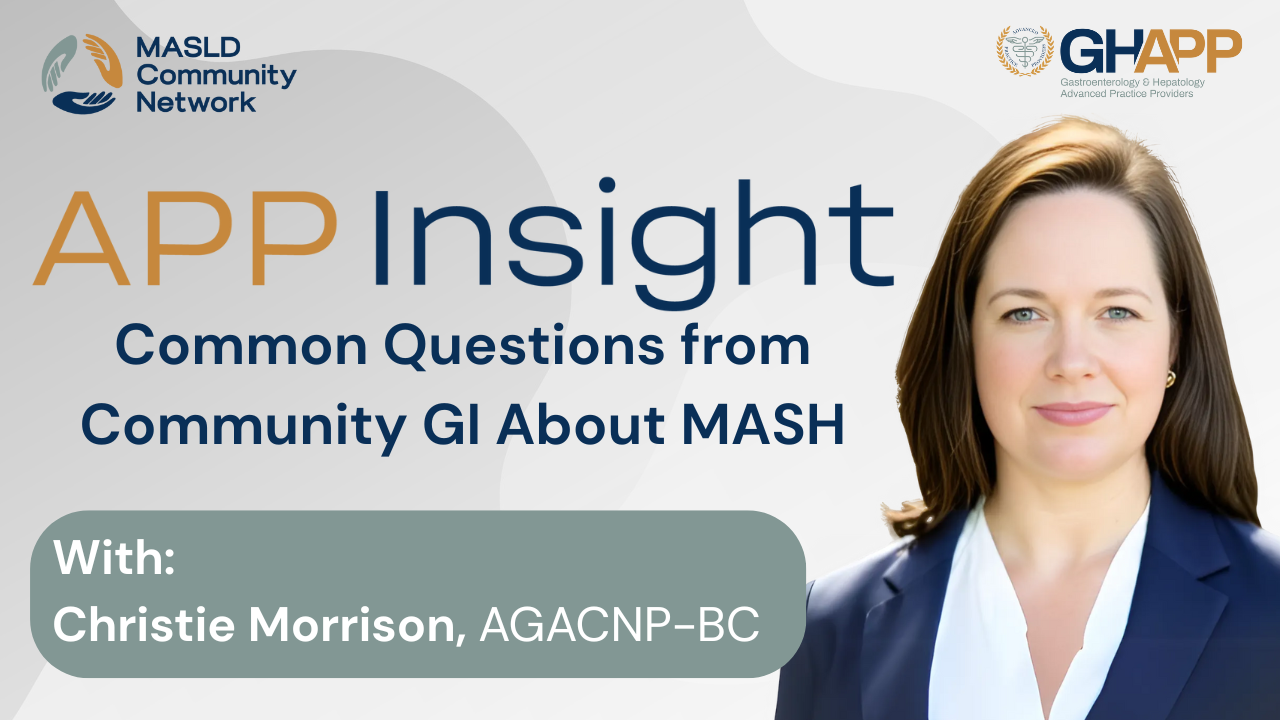
Common Questions from Community GI About MASH

In this insightful video, Christie Morrison, a local advanced practice provider with the GHAPP MASLD/MASH Community Network, answers two of the most frequently asked questions from community GI providers: when to refer patients with MASH to a transplant center and how to evaluate liver fibrosis when FibroScan® isn’t accessible. Christy emphasizes the importance of using non-invasive testing (NITs)—including FIB-4 and ELF (Enhanced Liver Fibrosis) scores—to help identify patients with F3 fibrosis, who are at higher risk for rapid progression to cirrhosis and hepatocellular carcinoma (HCC). She encourages early referral to transplant hepatology to avoid delays in care, especially given long wait times and the value of multidisciplinary support teams at transplant centers. For clinicians without access to FibroScan, Christy shares practical alternatives such as ordering reflex testing to ELF via major labs and leveraging easy-to-use digital tools like MDCalc for FIB-4 calculation. This episode is a valuable resource for GI providers looking to optimize liver care pathways and prevent late-stage complications in MASLD and MASH patients.
Watch Now
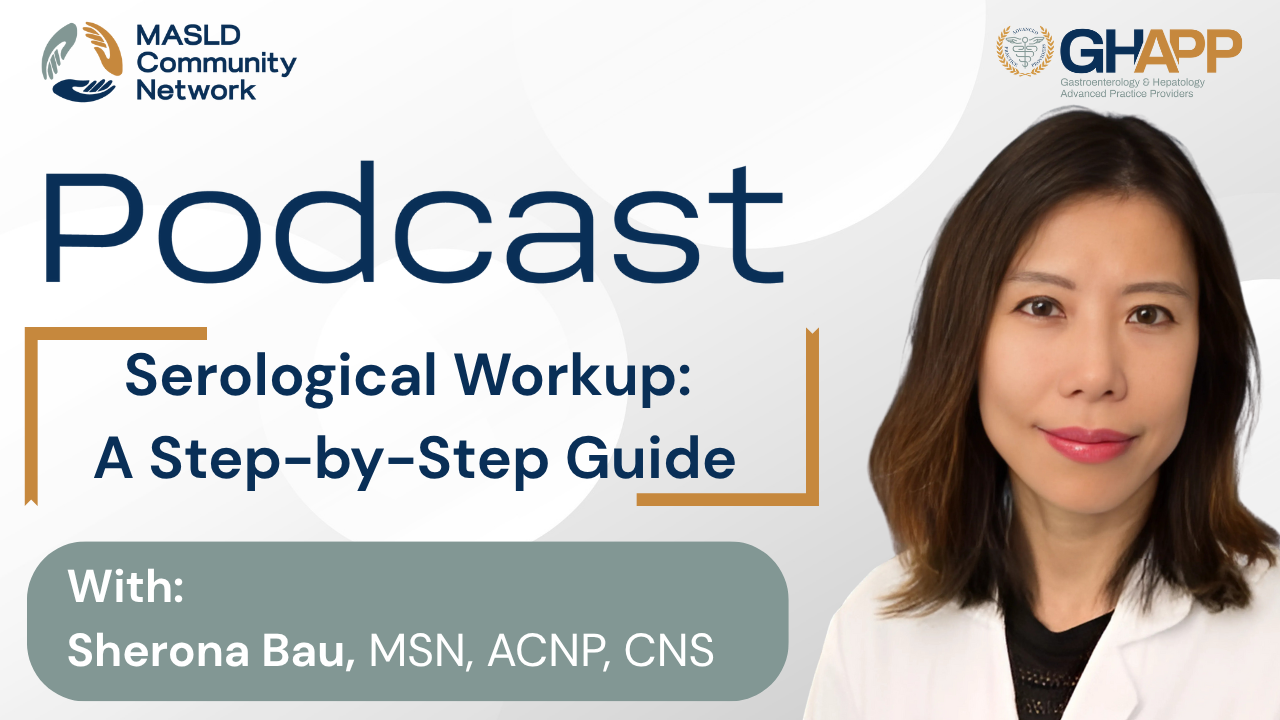
Serological Workup: A Step-by-Step Guide

In this comprehensive video, Sherona Bau, NP from UCLA, breaks down the essential hepatology workup for patients with MASLD (formerly NAFLD) and MASH, offering guidance for both primary care providers and GI/hepatology specialists. Drawing from her extensive clinical experience, she outlines a systematic approach to evaluating abnormal liver ultrasound findings—starting with critical labs to rule out chronic liver conditions like hepatitis B, hepatitis C, autoimmune hepatitis, PBC, and hereditary hemochromatosis. Sherona discusses the importance of ordering ANA, AMA, ferritin, serologies, and even specialized labs like the phosphatidylethanol (PEth) test to uncover alcohol-related liver disease that may be overlooked. She emphasizes the need to screen for cardiometabolic risk factors including type 2 diabetes and dyslipidemia and highlights non-invasive tests such as FibroScan and FIB-4 to help identify patients at risk of advanced fibrosis who may benefit from specialist referral. Most importantly, Sherona addresses the fears many patients face around liver disease progression and life expectancy, encouraging early intervention and coordinated care to improve long-term outcomes. This video is a must-watch for any clinician managing steatotic liver disease.
Watch Now
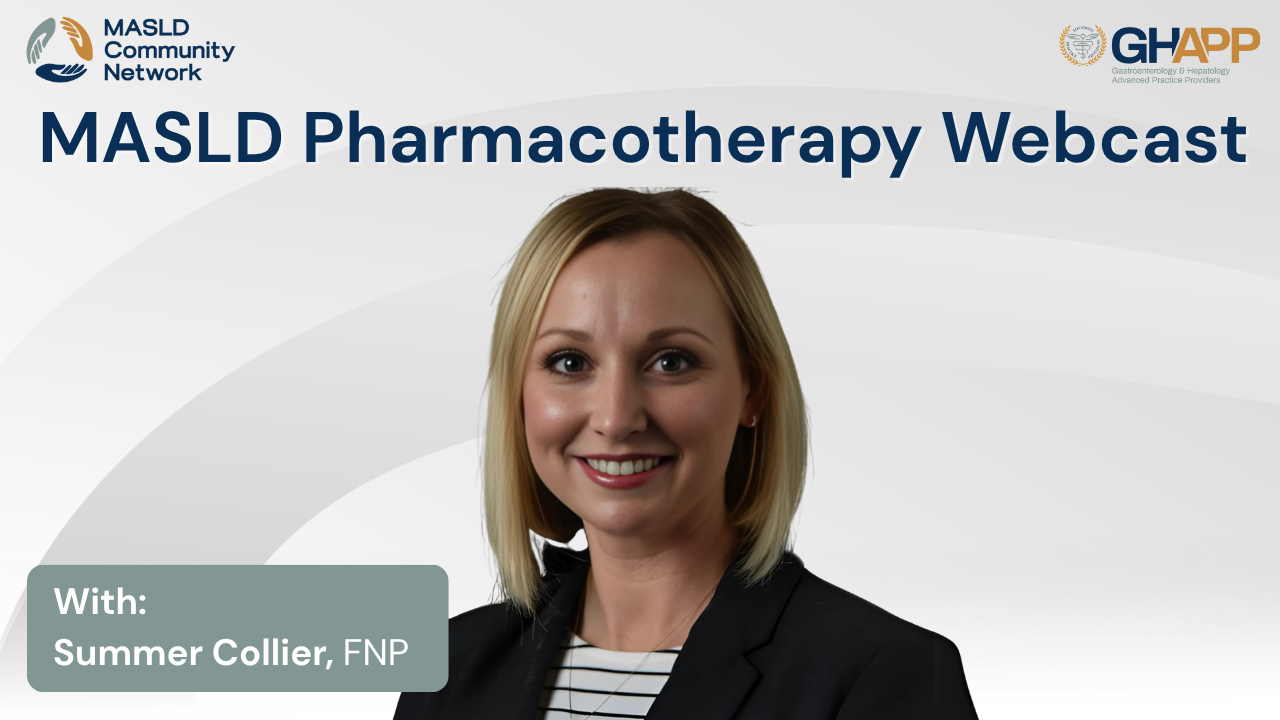
MASLD Pharmacotherapy With Summer Collier

Join Summer Collier, FNP, from UC San Diego Health, for a comprehensive discussion on pharmacotherapy for Metabolic Dysfunction-Associated Steatotic Liver Disease (MASLD) and MASH, presented through the GHAPP MASLD/MASH Community Network and sponsored by Madrigal Pharmaceuticals. In this session, Summer outlines the foundational role of lifestyle modification in treating MASLD, including diet, exercise, and weight loss, while emphasizing the growing need for liver-directed therapies in patients with moderate to advanced fibrosis. She reviews the clinical use of GLP-1 receptor agonists such as semaglutide and tirzepatide, which aid in glycemic control and significant weight loss, and explores their application in hepatology—including key data showing MASH resolution and fibrosis improvement. The discussion also addresses older treatment options like vitamin E and pioglitazone, explaining their risks, limitations, and patient selection criteria. The highlight of the presentation is a detailed analysis of resmetirom (Rezdiffra)—the first FDA-approved therapy for non-cirrhotic NASH with F2–F3 fibrosis. Summer walks through the MAESTRO-NASH trial, covering the mechanism of THR-β activation, improvements in liver histology, safety data, and practical prescribing guidance, including non-invasive monitoring, statin dose considerations, and drug–drug interactions. The session concludes with expert insights on staging, treatment duration, insurance access, and the evolving future of MASLD therapy. A must-watch for hepatology, GI, and primary care providers seeking to implement the latest evidence-based approaches in managing fatty liver disease.
Watch Now
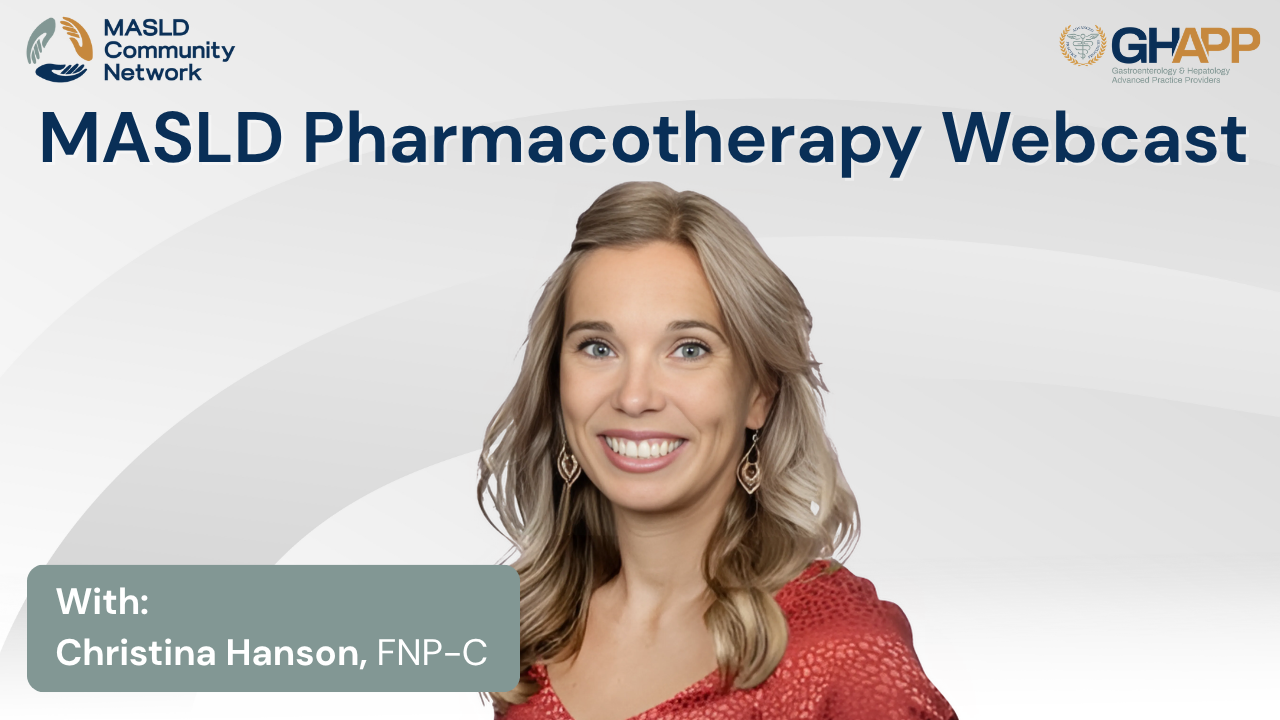
MASLD Pharmacotherapy With Christina Hanson

Learn about the latest advances in MASLD and MASH pharmacotherapy in this educational session from the GHAPP MASLD Community Network. Christina Hanson, NP, reviews the evolving landscape of treatment for metabolic dysfunction-associated steatotic liver disease (MASLD) and steatohepatitis (MASH), including the critical role of weight loss, cardiovascular risk reduction, and liver-directed therapies. The discussion covers current management strategies such as GLP-1 receptor agonists, bariatric interventions, statins, and lifestyle modification, while also exploring guideline-supported options like vitamin E and pioglitazone. Special attention is given to the first FDA-approved therapy for MASH, Resmetirom, including its mechanism, clinical trial results, safety considerations, and monitoring recommendations. Whether you are a hepatology specialist, primary care provider, endocrinologist, or advanced practice provider, this session highlights practical approaches to managing patients with MASLD and MASH and offers insights into emerging therapies that may shape future clinical practice.
Watch Now
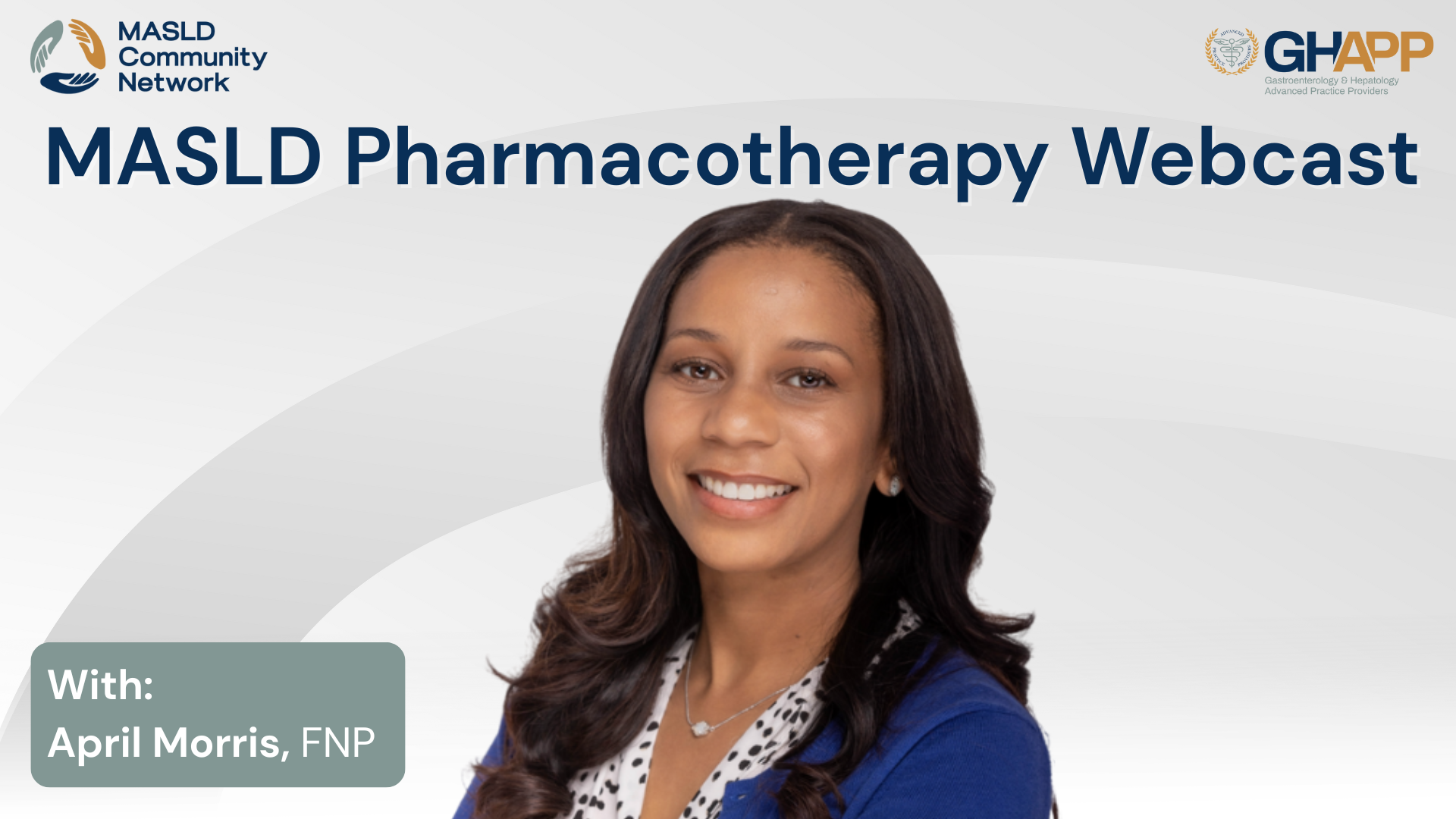
MASLD Pharmacotherapy With April Morris

Join April Morris, FNP, a hepatology and endocrinology nurse practitioner, for a comprehensive review of MASLD pharmacotherapy as part of the GHAPP MASLD Community Network. This expert-led session outlines a three-pronged strategy for managing Metabolic Dysfunction-Associated Steatotic Liver Disease (MASLD) and MASH, focusing on obesity reduction, cardiometabolic risk control, and liver-directed treatment. April walks through first-line lifestyle approaches, highlights key pharmacologic agents like GLP-1 receptor agonists, and explains their mechanisms and clinical relevance—including the groundbreaking data from the semaglutide trials showing resolution of MASH and improvement in liver fibrosis. The session also reviews the role and limitations of vitamin E and pioglitazone, emphasizing their risks in patients with diabetes or cardiovascular disease. The spotlight then shifts to resmetirom (Rezdiffra), a thyroid hormone receptor beta agonist FDA-approved for adults with non-cirrhotic NASH and moderate-to-advanced fibrosis (F2–F3). April explains the MAESTRO-NASH trial endpoints, clinical efficacy, common side effects, and appropriate patient selection. Learn how resmetirom improves fatty acid oxidation, reduces hepatic fat and fibrosis, and the key drug–drug interactions and statin dose considerations to manage during treatment. The discussion concludes with practical tips for monitoring, non-invasive staging (FibroScan, ELF, MRI-PDFF), and the evolving guidance on treatment duration, safety labs, and insurance barriers. This session is essential for clinicians navigating the growing landscape of therapeutic options in MASLD/MASH care.
Watch Now
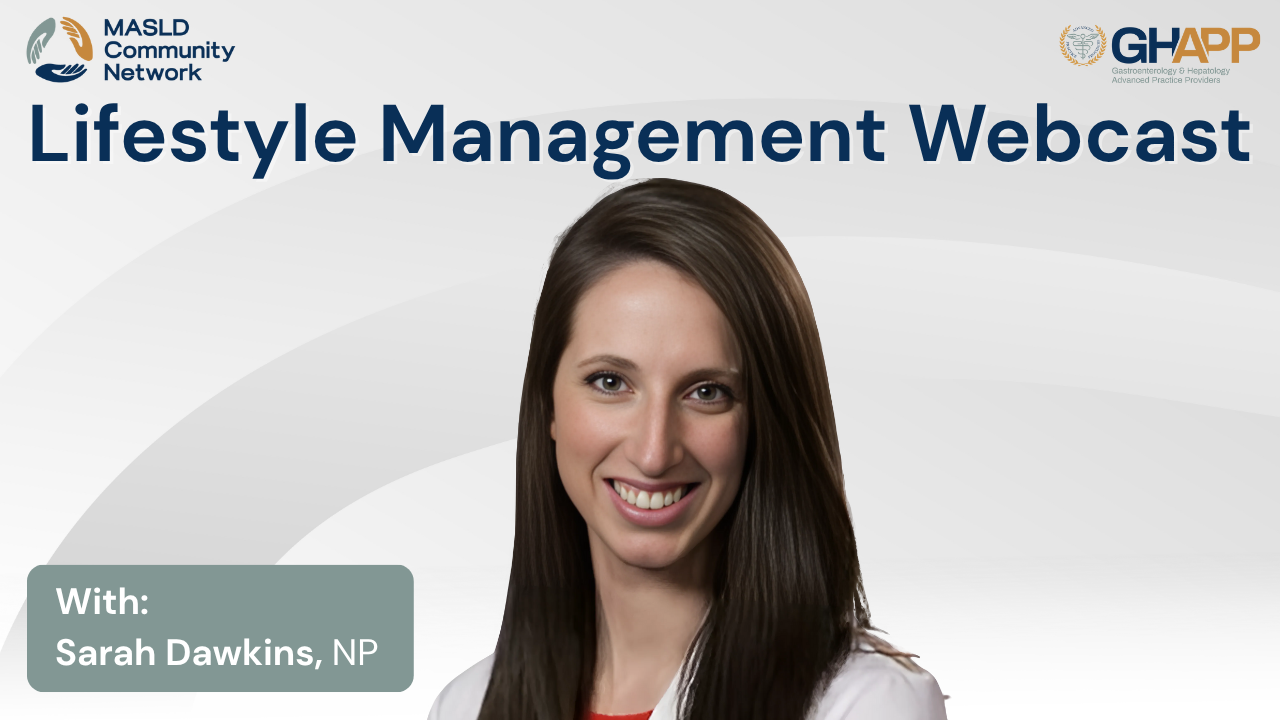
Lifestyle Management With Sarah Dawkins

Join Sarah Dawkins, NP, for an in-depth and inspiring conversation on lifestyle management for MASLD (Metabolic Dysfunction-Associated Steatotic Liver Disease) and MASH (Metabolic Dysfunction-Associated Steatohepatitis), presented through the GHAPP MASLD Community Network and sponsored by Madrigal Pharmaceuticals. In this engaging session, Sarah uses the real-world case of "Albert" to explore how to assess fibrosis risk using non-invasive testing like FIB-4 and FibroScan, and why lifestyle interventions remain the cornerstone of care for patients without advanced fibrosis. Through a patient-centered lens, she outlines practical strategies for addressing dietary counseling, exercise goals, and culturally sensitive approaches to nutrition—highlighting how individualized care, family involvement, and positive reinforcement can create meaningful behavior change. The session dives into the science behind genetic risk factors like PNPLA3, the role of central obesity in inflammation, and the impact of Western diets on liver health. Sarah also reviews the Mediterranean diet, exercise recommendations, and evidence-based interventions, including the benefits of aerobic + resistance training over HIIT for MASLD improvement. With clinical pearls on motivational interviewing, overcoming barriers to access, and the use of tools like the Exercise and Diet Adherence Scale (EDAS), this session empowers providers to make lifestyle conversations impactful—even when time is short.
Watch Now

Differentiating Between F3 and F4

In this comprehensive discussion, HoChong Gilles, a nurse practitioner with 25 years of hepatology experience at the Richmond VA Medical Center, explores the critical importance of accurately distinguishing between F3 (advanced fibrosis) and F4 (cirrhosis) in patients with MASH (metabolic-associated steatohepatitis). While both stages carry increased risks of liver-specific and overall mortality, Gilles explains that F3 may still be reversible with lifestyle changes or pharmacotherapy, whereas F4 signals irreversible liver damage with heightened risk of complications like portal hypertension, hepatic encephalopathy, and liver cancer. Viewers will gain a deeper understanding of how non-invasive tests—like FIB-4, ELF, FibroScan, and MRE—perform in identifying fibrosis stage, including their limitations and overlaps. Gilles also outlines when to consider liver biopsy, especially in cases with discordant test results, atypical features, or clinical uncertainty. This video emphasizes how staging accuracy informs eligibility for therapies, surveillance strategies like HCC screening, and overall prognosis. Learn how to approach this nuanced distinction in clinical practice and why F3 vs. F4 isn't just semantics—it's a turning point in patient care.
Watch Now
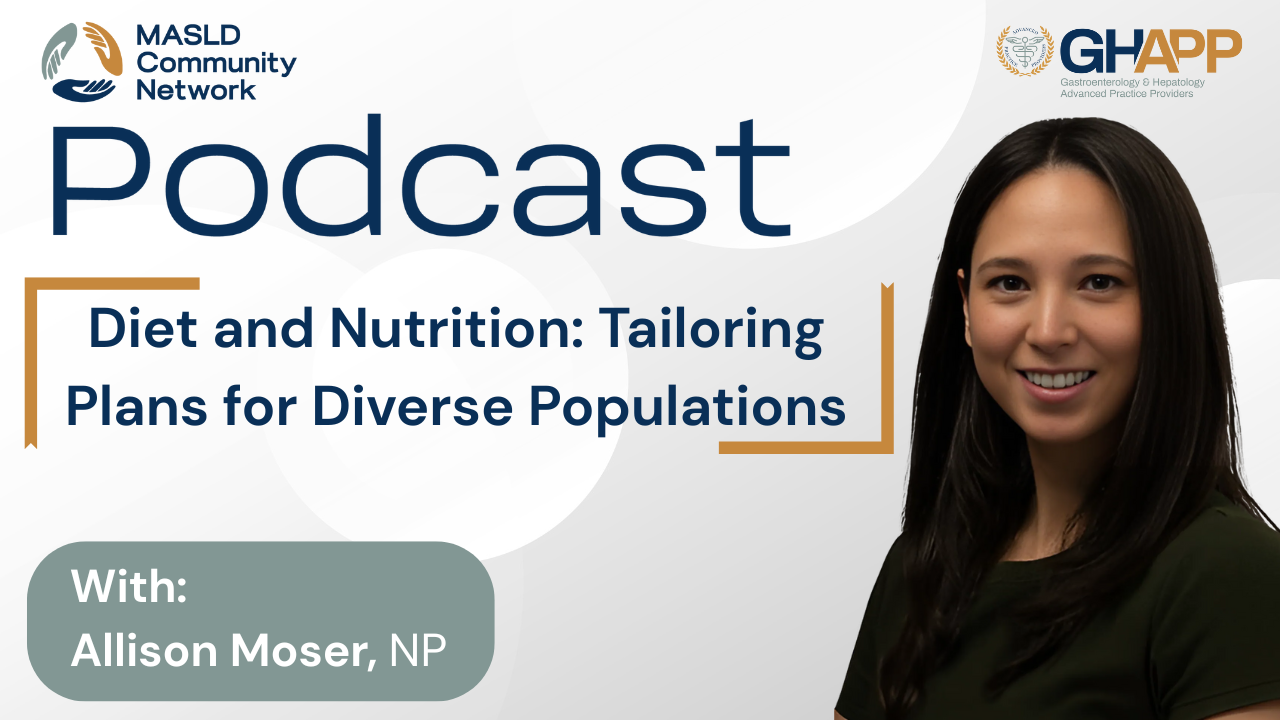
Diet and Nutrition: Tailoring Plans for Diverse Populations

In this episode, Allison Moser, NP, from Rush University Medical Center, dives into one of the most impactful aspects of MASH (Metabolic Dysfunction–Associated Steatohepatitis) management — diet and nutrition. While weight loss is often the starting point, Allison explains why sustainable liver health depends on personalized, culturally sensitive, and practical nutrition strategies. Learn how evidence-based eating patterns like the Mediterranean diet and plant-based diets can reduce hepatic steatosis, improve insulin sensitivity, and lower inflammation, even without weight loss. Allison shares actionable food swaps for diverse cultures, affordable ways to eat healthy when access is limited, and tailored recommendations for patients with comorbidities like diabetes, CKD, and cardiovascular disease. She also discusses the major role of added sugars, processed foods, and sugary or diet beverages in driving liver damage — and how to help patients make realistic, stepwise changes that last. Whether you’re an APP, NP, PA, or clinician treating patients with MASH or MASLD, this episode offers practical, evidence-based tools to improve nutrition counseling, build patient trust, and support long-term liver health.
Watch Now

APP Insight: Common Questions from Community GI About MASH

In this episode, HoChong Gilles, DNP, FNP-BC, a seasoned hepatology expert and Clinical Program Director at the Central Virginia VA Health Care System, addresses a frequently asked question from primary care and community GI providers: How do you risk stratify patients without access to a FibroScan? Drawing on over 25 years of clinical experience, HoChong outlines practical strategies for assessing liver fibrosis using the FIB-4 score—a simple calculation based on patient age, ALT, AST, and platelet count. She also discusses how tools like the Enhanced Liver Fibrosis (ELF) test, available through Quest or Labcorp, can serve as valuable alternatives in the absence of elastography. Whether you're managing incidental hepatic steatosis or evaluating elevated liver enzymes, this episode offers step-by-step guidance for using non-invasive biomarkers to stratify liver disease risk and guide referrals effectively. Perfect for clinicians in primary care, GI, and hepatology seeking practical, accessible tools for early liver disease assessment.
Watch Now
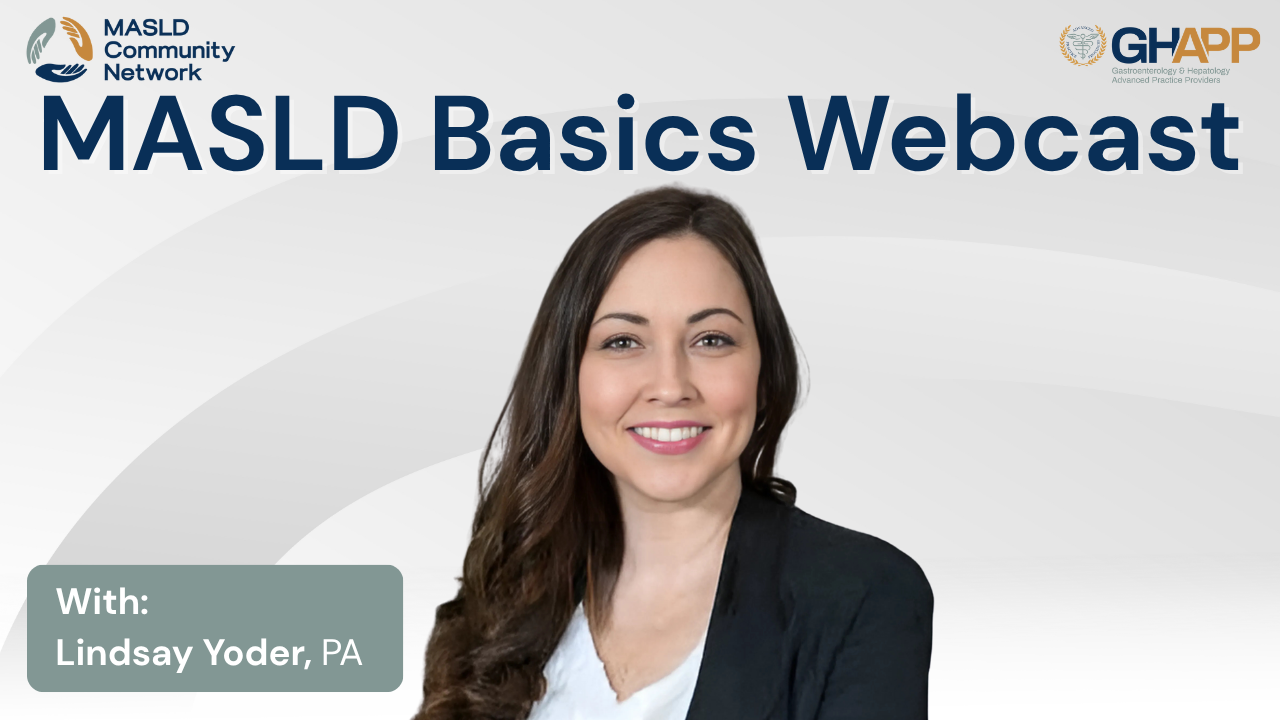
MASLD Basics With Lindsay Yoder

Lindsay Yoder, PA, Indiana University, delivers a clear primer on the new MASLD/MASH nomenclature and how it fits within the broader Steatotic Liver Disease (SLD) spectrum—including MetALD and alcohol-associated liver disease—so clinicians can label etiology correctly and tailor care. She walks through a practical primary-care algorithm: start with FIB-4 (use 1.3 and 2.67 cutoffs), then add ELF and/or VCTE/FibroScan (LSM and CAP) to risk-stratify fibrosis, refer when intermediate/high risk, and reserve biopsy for discordant cases. The session reviews staging (F0–F4), when to escalate to cirrhosis management and HCC/variceal surveillance, and highlights the impact of the first FDA-approved therapy (resmetirom) for MASH with F2–F3 fibrosis, alongside multidisciplinary lifestyle and cardiometabolic optimization. Perfect for APPs, PCPs, GI, and hepatology teams seeking a concise “basics to bedside” roadmap.
Watch Now





 August 2025
August 2025 